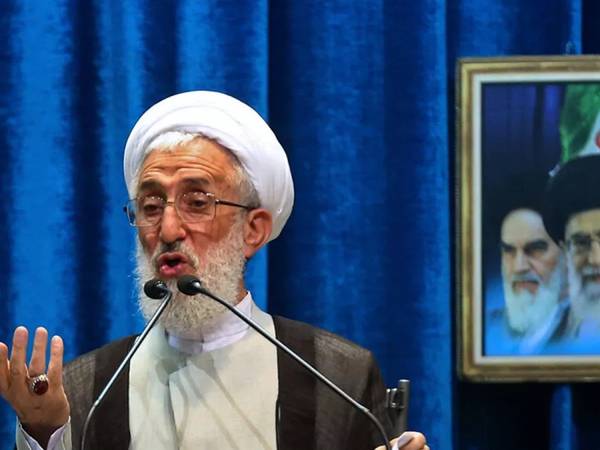The serious corruption allegations against Ayatollah Kazem Sedighi, the ultra-hardliner Friday imam of Tehran, have further eroded trust in the Iranian system and its officials among the populace.
Earlier this month, irrefutable evidence surfaced indicating Sedighi's involvement in the appropriation of a valuable plot of land worth approximately $20 million in northern Tehran. The revelation, brought forth by a whistle-blower, shed light on Sedighi's alleged misdeeds.
Initially, Sedighi denied any knowledge of the transfer of ownership, claiming his signature had been forged by a trustee. However, it was later revealed that Sedighi had personally signed the transfer documents at a notary public. Despite this acknowledgment, the seminary he oversees maintained innocence and stated that the plot's ownership was in the process of being returned.
“Claiming [the plot] is in the process of being repatriated [to the seminary], several months after the crime was committed and following its revelation, has no effect on the [nature of the] crime itself,” Mohsen Borhani, a dissident lawyer with seminary training, said on Instagram, arguing that repatriation of the plot, if completed, can only be a factor contributing to reduction of the prescribed sentence for the crime.
Iran International TV’s “Your Side of the Story” program received dozens of messages last week from citizens who are extremely distrustful of a regime they say is “systematically corrupt” and incorrigible.
Some of the messages shared the same suspicions that repatriation of the appropriated plot to the Seminary by Sedighi, even if true, meant nothing other than “taking from one pocket and shoving it in the other”.
Many others who have taken to social media to express their anger, compare authorities’ leniency in dealing with Sedighi’s “grand theft” with their extreme harshness against others for petty theft.
People commented that the system punishes petty criminals for theft by long prison sentences and even amputation of fingers and hands, targets women for showing a few strands of hair, but has not taken any action against Sedighi as if repatriation of the ownership of the plot to the seminary all wrongdoing is forgiven.
“Firstly, there is no documentation or evidence that this man repatriated the plot. Even if he produces proof, no one will believe it because Iranian people’s trust in the authorities of the Islamic Republic does not even reach one percent,” one of the messages sent to Your Side of the Story read.
A veteran of the Iran-Iraq War (1980-1988), Khalil Aghapour, in a tweet recounted how as a 15-year-old he had forged his father’s signature to be able to join the volunteers to defend the homeland against the Iraqi invasion, and was mortally wounded several times. “I wish I was dead,” he said, referring to the deeds of those in power who he said claim to be pious.
Sedighi is among Supreme Leader Ali Khamenei’s inner circle. Despite the scandal involving him, he was invited to Khamenei’s Norouz (New Iranian Year) speech on March 20.
Hardline media such as Tehran Municipality’s Hamshahri newspaper and Fars News Agency, have been sympathetic to Sedighi and tried to justify his actions.
Dedicating a large section on its front page to the issue on Saturday, Hamshahri called on hardline students known as Justice Seekers (Edalatkhahan) who are highly critical of Sedighi to treat the case “piously” and to “avoid gross injustice in the name of seeking justice”.
